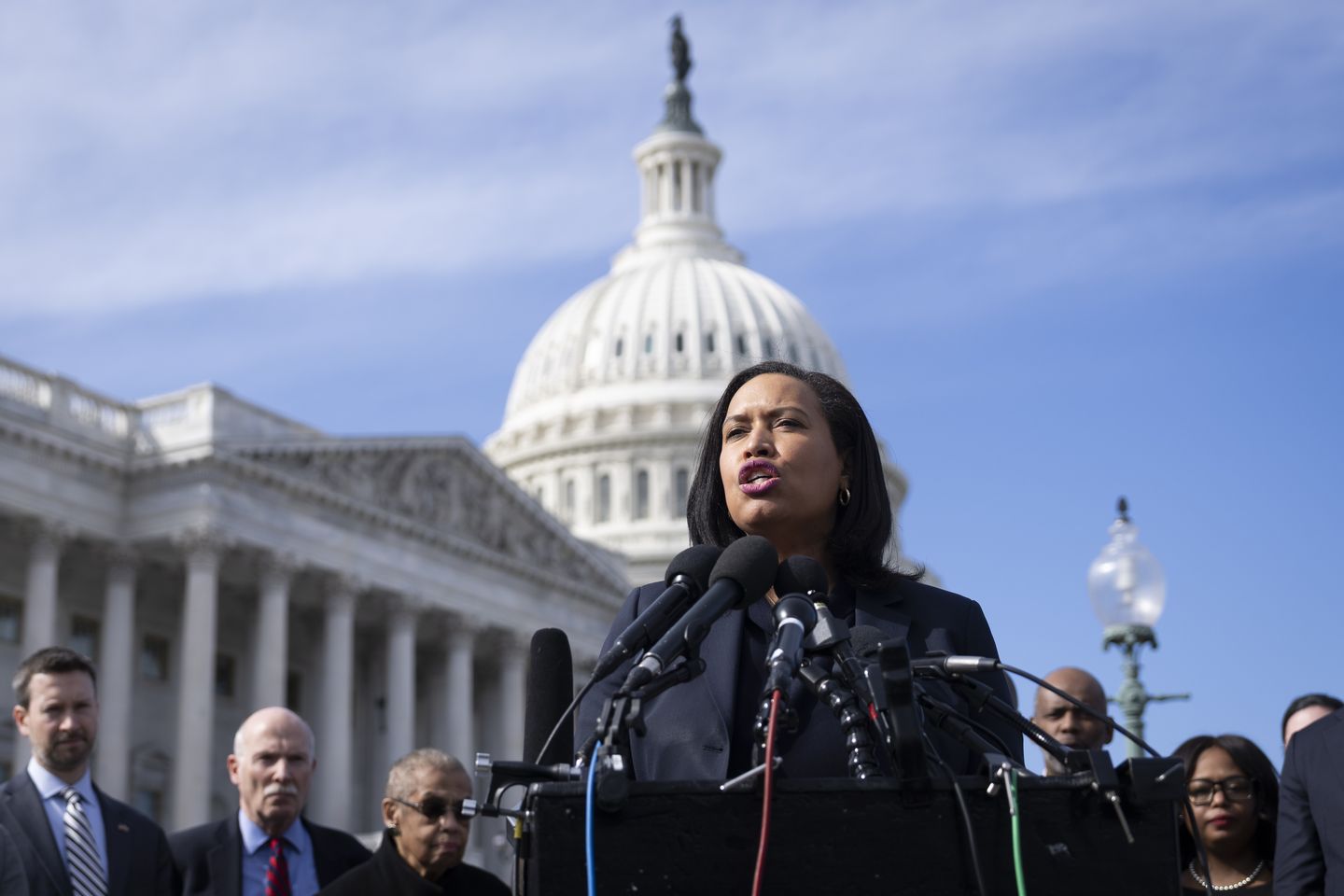
Moody’s has revoked the District of Columbia’s AAA credit rating due to the Trump administration’s shrinkage of the government workforce and the city’s shaky real estate outlook, D.C.’s chief financial officer said Thursday.
Glen Lee, who has a mandate under federal law to oversee D.C.’s financial stability, also defended his office’s commitment to “fiscal prudence and sound financial management.”
“This rating change is not the result of a degradation of the District’s strong governance and effective fiscal management practices,” Mr. Lee said in a statement. “Rather, it stems from broader federal decisions regarding its workforce and spending, and economic trends that are beyond the District’s control and are having a disproportionate impact on the local economy.”
In a statement to The Washington Times, a White House spokesperson blamed former President Joseph R. Biden and the city’s Democrat-controlled government for the change.
“By ending Joe Biden’s lax remote work policies, the Trump administration has done more for the District of Columbia’s economy and tax revenue than any other administration in decades,” said Kush Desai, White House deputy press secretary. “What’s hurting D.C.’s credit rating is the city’s years of soft-on-crime policies and lackadaisical handling of homelessness, illegal migrants, and open-air drug use that’s keeping residents and businesses away.”
Moody’s awards credit ratings on a scale from Aaa to C based on evaluations of whether an institution or government can faithfully lend money and repay loans.
On Wednesday, the global agency downgraded the nation’s capital from its top rating to Aa1, its second-highest rank, with “very low” credit risk and a strong capacity to repay debt.
The Moody’s report cited a projected 21% cut to the federal workforce of 40,000 workers over the next four years, which it noted “will erode the stability that the institutional presence of the federal government has historically had on the District’s economy.”
“Economic growth in the nation’s capital will lag the region and the U.S. because of the outsized impact of federal workforce cuts,” Moody’s said.
The agency also revised its outlook for D.C. from positive to negative, noting an increased risk of defaulting on $12.3 billion in outstanding bonds.
“The negative outlook reflects the increased likelihood of further federal spending and workforce cuts and the District’s declining commercial real estate market as well as the high degree of uncertainty regarding federal government policy changes, notably reductions to the federal share of Medicaid funding,” Moody’s said.
In his statement Thursday, Mr. Lee also acknowledged “ongoing weakness in the commercial real estate market” as a factor in the city’s financial woes.
D.C. leaders faced a historic budget crisis in 2024 caused by fewer people shopping, eating or working in downtown Washington as the Biden administration extended telework arrangements for government workers after the COVID-19 pandemic.
Occupancy in downtown offices flatlined at about 50% of pre-pandemic rates in 2023 as former daily commuters worked partly from home in Maryland and Virginia, Mr. Lee’s office reported in March 2024.
The ensuing decline in commercial real estate values is projected to cost the city between $260 million and $300 million in annual tax revenues through 2028, with losses worsening afterward as companies decrease their footprints or let leases expire.
The city has also struggled in recent years with pandemic stimulus funding drying up, crime-plagued retailers pulling out of depopulated streets, mass transit ridership declining and struggling restaurants closing.
D.C.’s Annual Comprehensive Financial Report reported that commercial property values dropped by $11 billion from 2021 to 2023. That resulted in $200 million of lost tax revenues, the Washington Business Journal estimated.
Mayor Muriel Bowser, a Democrat, worked with Mr. Lee’s office and the D.C. Council to approve a balanced fiscal 2025 budget of $21 billion in operating funds and $11.8 billion earmarked for capital improvements.
In March, the Republican-controlled Congress cut $1.1 billion from the D.C. budget and adjourned without acting on public requests from city lawmakers and the Trump White House to put it back.
Ms. Bowser said this month that the budget hole could result in layoffs and service cuts affecting 700,000 residents. She has delayed presenting a fiscal 2026 budget proposal until the issue is resolved.
According to the nonpartisan D.C. Policy Center, a March congressional resolution that “incorrectly treats Washington, D.C.’s locally funded budget — raised through local taxes — as part of the federal budget” has forced the city to revert to its fiscal 2024 budget.
Yesim Sayin, the center’s executive director, noted that Moody’s “clearly signaled” last month that it was planning to downgrade D.C.’s credit rating.
“It doesn’t mean the District is managing its money poorly,” Ms. Sayin said Thursday. “The good news is, D.C.’s bonds are still considered safe to invest in.”












